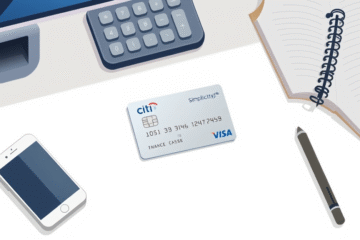Financial Planning is a crucial step toward achieving monetary independence and stability in today’s challenging economic landscape.
Understanding how to manage your finances effectively can make the difference between financial freedom and constant debt struggles.
This comprehensive guide will explore essential strategies and practical steps to help you maintain healthy finances without relying on credit.
By implementing these proven methods, you’ll be better equipped to take control of your financial future and build lasting wealth.
Importance of Financial Planning
Financial planning plays a crucial role in managing the finances efficiently. It helps individuals avoid the traps of credit dependency.
With proactive planning, you can anticipate future financial needs and relevant text avoid reliance on credit during emergencies.
Explore more about financial planning.
A comprehensive financial plan brings clarity and control over your finances. This plan can reduce anxiety around managing money.
Key aspects to focus on include:
- Budgeting
- Expense tracking
- Setting clear financial goals
These steps ensure a solid financial foundation, encouraging consistent savings and investments.
Budgeting effectively helps allocate funds wisely, avoiding unnecessary expenditures and fostering savings.
Tracking expenses is essential for identifying areas where cutbacks are possible, making room for savings growth.
Setting realistic financial goals provides motivation, enabling you to work diligently towards them without slipping into debt.
For a deeper dive into financial planning, check out this SmartAsset overview.
Utilize a financial planning tool to further optimize your approach and gain control over your financial trajectory.
Creating a Budget
Assess your net income first when creating a practical budget. This includes all sources of income after taxes and deductions. Then, list your monthly expenses, categorizing them into needs and wants.
Needs include rent, utilities, and groceries, while wants consist of dining out and entertainment. This guide offers a comprehensive strategy for categorizing expenses.
Next, set financial goals to direct your budgeting efforts. Your aim might involve saving for a vacation or paying off debts.
A sample budget in table format can help visualize this.
| Category | Amount |
|---|---|
| Rent | $800 |
| Utilities | $150 |
| Groceries | $300 |
| Dining Out | $100 |
| Savings | $150 |
Adjust your budget to prioritize expenses. Shift funds from wants to needs if necessary. Regularly monitor your spending to stay on track.
Use a budgeting app to assist in tracking expenses and maintaining financial discipline.
By following these steps, you create a balanced budget that aligns with financial goals. This approach offers a sustainable way to manage money effectively.
Cutting Unnecessary Expenses
Recognizing and eliminating unnecessary expenses can significantly enhance financial stability. Begin by categorizing your spending into essentials and non-essentials.
Identifying the difference between needs and wants can help focus on necessary expenditures. Track your spending to pinpoint areas for improvement.
Using financial tools to monitor transactions makes this process easier. Consider seeking advice from resources such as Truist Bank tips for reducing expenses.
“Reducing unnecessary expenses frees up resources for more meaningful use,”
according to money management experts.
In line with these tips, review spending in categories like subscriptions, dining out, and entertainment by asking if these expenses add value to your life.
Here are practical examples for each category:
- Cancel unused or duplicate services.
- Opt for home-cooked meals rather than dining out.
- Look for free community events for entertainment.
Adopt a habit of reviewing and adjusting your budget regularly to stay aligned with financial goals. Knowing your financial reality is the first step towards prudence and security.
Setting Clear Financial Goals
Setting clear and achievable financial goals is essential for aligning with personal values and aspirations.
U.S. Bank’s guide on financial goals suggests connecting each goal to deeper motivations, enhancing relevance.
Begin by reflecting on your current financial situation:
- Specificity: Define clear, detailed goals, such as saving $500 monthly for a house.
- Measurable: Establish metrics to track progress, like a savings percentage of income.
- Achievability: Ensure goals align with current income and resources for practicality.
- Relevance: Goals should resonate with personal values, ensuring motivation.
- Timeliness: Set deadlines, like achieving a debt-free status in five years.
By understanding your financial reality and setting realistic, time-bound goals, you can avoid financial distractions and remain focused on your priorities.
A Forbes article highlights the importance of deadlines in effective goal setting, reinforcing discipline.
Regularly review and adjust goals to align with life changes and financial shifts.
Monitoring Spending
Monitoring spending regularly is essential for maintaining financial stability and achieving your financial goals. Tracking your expenses allows you to identify spending patterns, allocate resources effectively, and avoid unnecessary debt. Numerous tools can help with this process, such as specific apps and spreadsheets.
Effective methods for tracking expenses include using digital tools that provide real-time insights into where your money goes. For instance, apps like Expense Tracker offer an intuitive interface, allowing users to categorize and visualize spending easily. These applications often offer features such as setting budget limits and receiving alerts when you exceed them.
Alternatively, spreadsheets are a more straightforward yet powerful option for those who prefer manual tracking. Tools like Google Sheets or Excel are ideal for creating custom templates to suit individual needs. These tools enable easy updates and ensure accuracy in calculations. Using these resources effectively can greatly assist in achieving financial discipline.
Building an Emergency Fund
Having an emergency fund is crucial because it offers financial security during unexpected events like job loss or medical emergencies.
According to experts at NerdWallet, an emergency fund prevents debt accumulation during crises.
A step-by-step approach ensures effective savings:
- Determine your goal by calculating three to six months’ expenses.
- Develop a precise budget, distinguishing between essential and non-essential costs.
- Establish a separate savings account dedicated solely to this fund; this makes access convenient.
- Implement automated deposits from your paycheck for consistent growth.
- Regularly review and adjust contributions to align with evolving financial needs.
Efforts to build financial safety nets offer peace of mind, safeguarding against credit reliance.
An emergency fund isn’t for routine spending, preserving resources for genuine crises only.
Commitment to systematic saving not only fortifies financial stability but ingrains prudent monetary habits.
Ultimately, possessing such a fund mitigates stress, enhancing resilience against unforeseen financial fluctuations.
Taking control of your financial future requires dedication and consistent effort.
By following these financial planning strategies and maintaining discipline in your spending habits, you can build a stable financial foundation and reduce your dependence on credit.



0 Comments